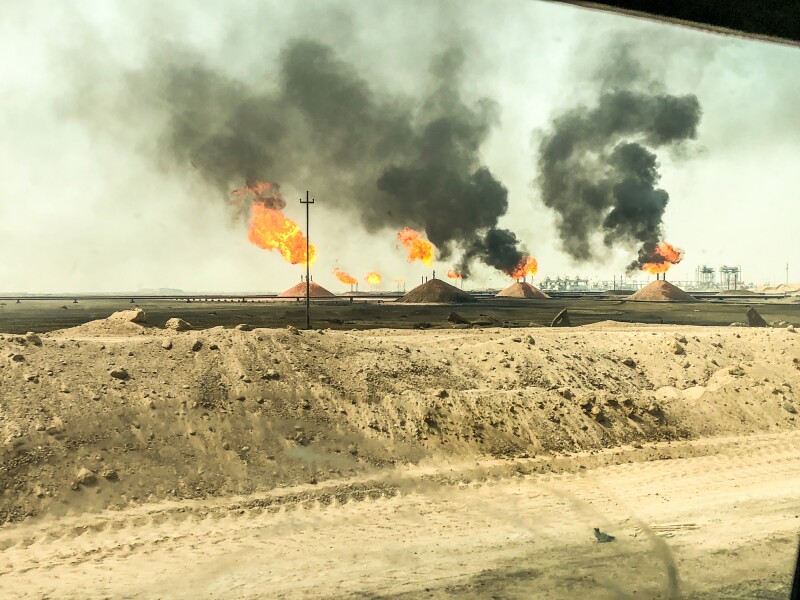French producer TotalEnergies is ramping up contract awards related to the Gas Growth Integrated Project (GGIP) in southern Iraq with engineering firm Wood scooping a 3-year, $46 million front-end engineering and design (FEED) contract covering the initial phase of the project.
The GGIP aims to recover natural gas currently flared in the Basra region to supply power generation plants and include the construction of a seawater treatment unit to provide water injection for pressure maintenance and a 1-GW solar power plant for electricity supply to the area.
“This project will improve environmental sustainability through emissions reduction efforts,” said Shaun Dewar, senior vice president of operations, Middle East and Africa at Wood. “As part of this agreement, Wood will also continue to invest in local employment and skills development in the Basra region.”
The contract will be delivered by Wood’s teams in Basra and Dubai, creating 100 new positions. Wood currently employs more than 1,300 people in Iraq and the UAE.
Earlier this year, TotalEnergies tapped Vallourec for the supply of casing, tubing, and associated accessories for the first phase of the GGIP. Under the deal, Vallourec will supply in aggregate 15,000 tonnes of tubes and connections for the project’s 30 wells from its Brazilian and European plants. Deliveries will start this year.
In May 2023, Prime Minister of Iraq Mohammed Shia al-Sudani and TotalEnergies agreed to move forward with the estimated $10 billion GGIP. The project consortium is made up of TotalEnergies (45%), QatarEnergy (25%), and Iraq’s national oil company, the Basrah Oil Company (30%).
The project is expected to increase electricity supply to the Iraqi people, advance Iraq’s energy self-sufficiency, reduce harmful climate effects from flared gas in southern Iraq, and allow for the export of gas products to new markets.
A month earlier, TotalEnergies and the Iraqi government struck a deal to salvage an estimated $27 billion in energy projects designed to boost the country’s electricity production — including the GGIP.
The projects had been delayed since September 2021 by wrangling over the size of Baghdad’s share in the deal.


